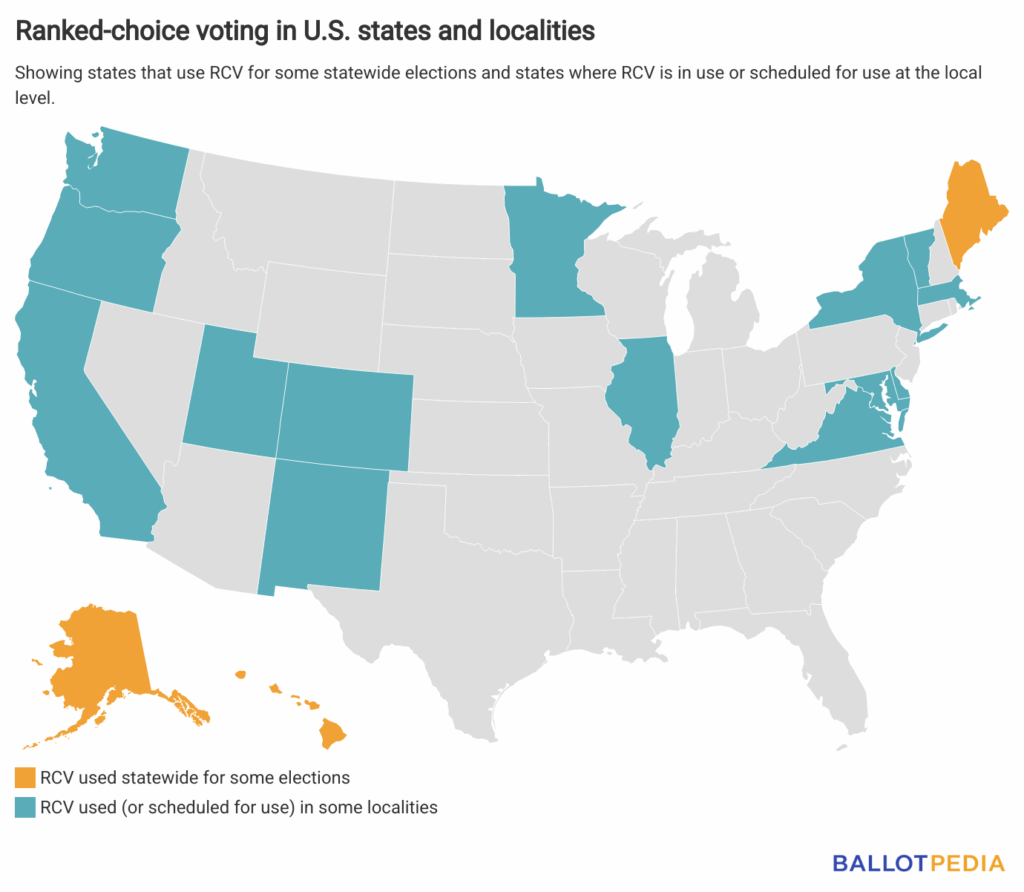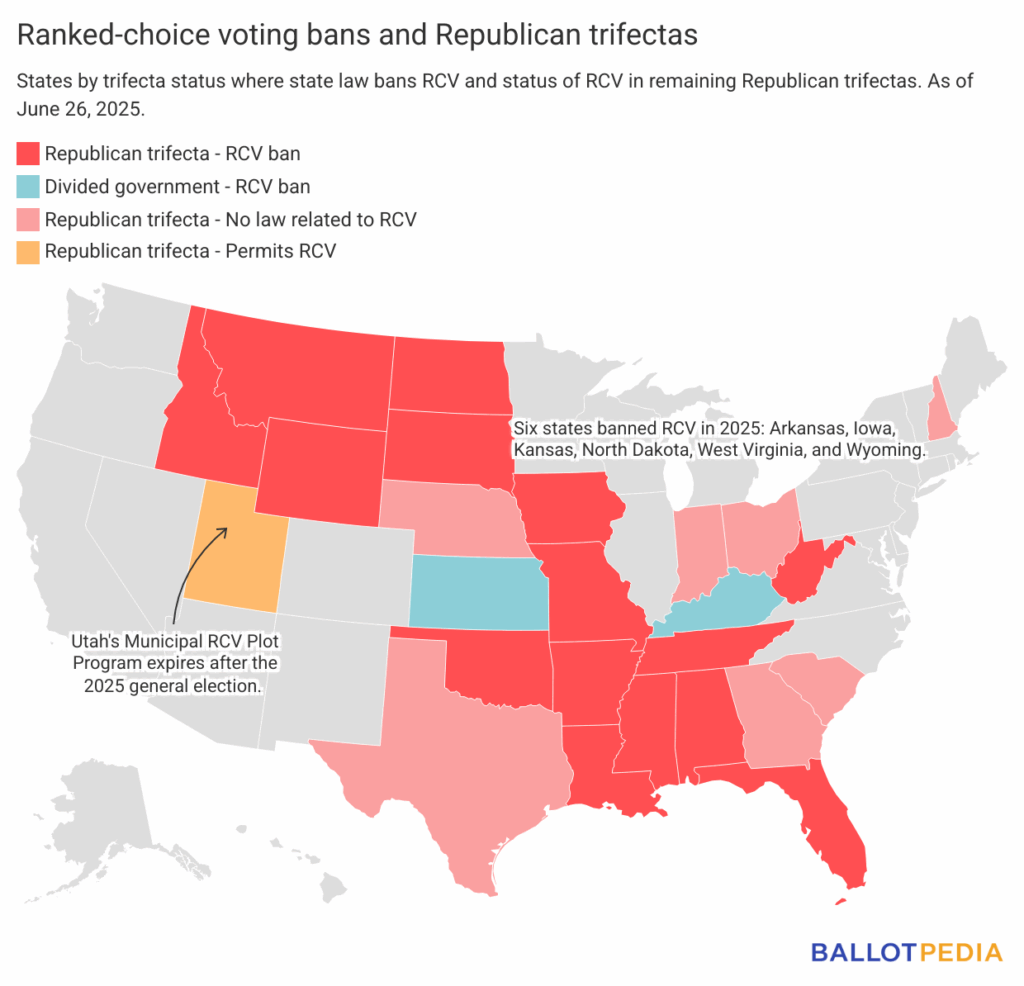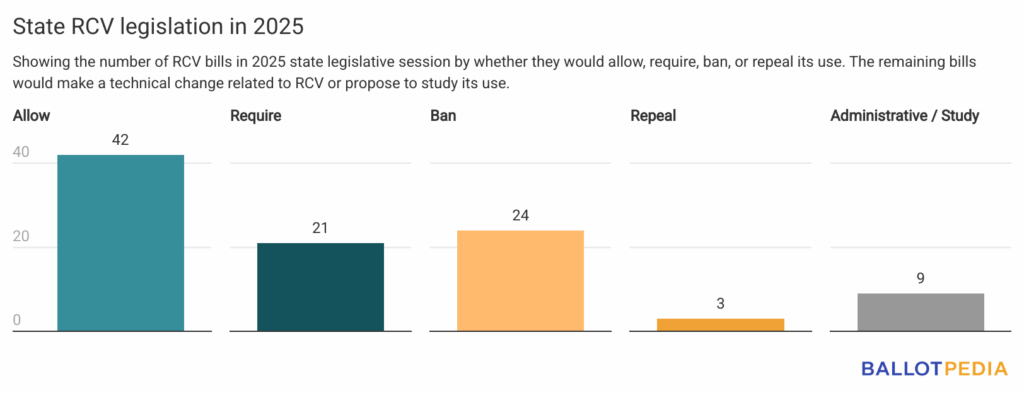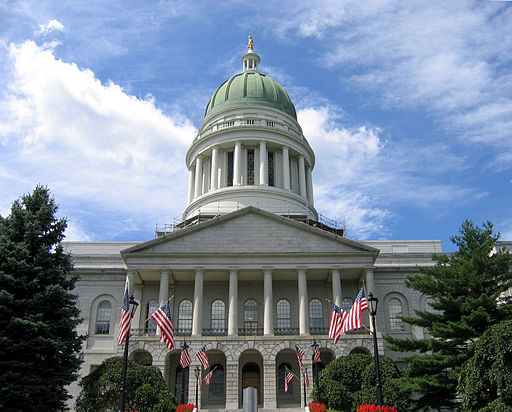On June 25, 2025, both chambers of the Maine Legislature agreed by voice vote to recall LD 1666 from Gov. Janet Mills (D) desk and carry the bill over to the next special or regular legislative session.
The bill would have expanded the state's use of ranked-choice voting (RCV) to include general and special elections for governor, state senator, and state representative. Currently, Maine is one of two states — alongside Alaska — that uses RCV for at least some regular statewide elections. Maine uses RCV for federal and all other statewide elections besides governor and state legislature. State law also authorizes municipalities to adopt the electoral system for local elections. Hawaii is the only other state where RCV is authorized for a statewide use — for special federal elections. In total, RCV is in use or scheduled for use in 17 states, including 12 with Democratic trifectas.

The Democratic-sponsored LD 1666 passed both chambers of the legislature largely along party lines on June 18. In the Maine House of Representatives, the bill passed 74-73 with two Democrats opposition and two independent legislators in favor. In the Maine Senate, it passed 21-14 with one Republican joining all Democrats to send the bill to Mills for consideration.
In 2018, Maine became the first state to adopt RCV for at least some statewide elections after voters approved the Maine Ranked Choice Voting Initiative. The initiative originally included gubernatorial and state legislative races among those that would transition to RCV, but in May 2017, the Justices of the Maine Supreme Judicial Court issued a unanimous advisory opinion concluding that the application of RCV to general elections for those offices was unconstitutional under the Maine Constitution. According to the Maine Secretary of State's website, "the Maine Constitution requires the winners of those offices in a general election to be decided by a plurality. Primary elections in Maine and elections for federal offices are governed by statute and not by the Maine Constitution." In 2019, Maine expanded the RCV requirement to presidential primaries and general elections after Mills allowed LD 1083 to become law without her signature.
According to the Portland Press Herald, LD 1666 would have, "clarif[ied] the definition of ranked choice voting by changing several references to 'votes' to 'ballots' and add[ed] that the final round 'of tabulation is determined to have received a plurality of the votes cast,'" thereby circumventing the constitutional language that prevented RCV implementation for gubernatorial and legislative offices.
Referencing a 2022 opinion from the Alaska Supreme Court that contested the conclusions of the 2017 Maine advisory opinion, State Rep. Adam Lee (D) said, "This legislative change would align us with how the Federal Elections Commission and other federal courts and the Alaska Supreme Court have come to understand ranked choice voting — not as multiple votes but as a single iterative process."
Sen. Cameron Reny (D), the bill's sponsor in the upper chamber, said, "The bill modifies the statute to clarify that a ranking is not a vote, but is instead a preference expressing how the voter would like their vote to count in the tabulation process. ...The changes in this bill are a technical update to ensure our statutory language aligns more clearly with important provisions in our state’s constitution."
Republicans in the legislature and opponents of the measure said that the bill did not remedy the constitutional issues. Rep. David Boyer (R) said, "if we did pass this, it would be unconstitutional, and we should have reached out to the Maine Supreme Court, rather than trying to do this end-run around."
Harris Van Pate – a policy analyst for the Maine Policy Institute, which he described as a "free-market think tank," — said in testimony against the bill that it was "not only legally dubious, but also deeply irresponsible. It erodes trust in our electoral system, invites costly litigation, and further politicizes the election administration process."
In a brief written to the state supreme court before the 2017 advisory opinion, Mills, who then served as Attorney General, wrote, "The Constitution must be amended before such fundamental changes in Maine’s electoral process can occur."
If the bill had become law, with or without Mills' signature, it would have been the first legislative expansion of RCV at the state level since 2022, when former Hawaii Gov. David Ige (D) signed SB 2162 into law. That same year, Florida and Tennessee became the first states to ban the use RCV, and 15 states have joined them since. All but two of those states adopted bans with a Republican trifecta in control of state government, while Kentucky and Kansas did so with divided governments. Kansas Gov. Laura Kelly (D) became the first Democratic governor to sign an RCV ban into law earlier this year when she approved SB 6 on April 1.

Ninety-nine bills related to RCV were active at one point during 2025 state legislative sessions. Of those, six have become law, all six prohibiting the use of RCV. Eight of the 23 states with a Republican trifecta remain without RCV bans.
Proponents of RCV continue to advocate for the electoral system at the state and local level. The majority of RCV-related state legislation in 2025 would authorize or require a new use of RCV (63 bills), while in May, the Boston, Massachusetts city council voted 8-4 to approve a home rule petition to adopt RCV for city elections. Several steps remain before voters consider that proposal, but, if adopted, Boston would become the ninth of the United States’ largest 100 cities to use or schedule the use RCV for at least some of their city elections joining Oakland and San Francisco in California; Washington, D.C.; Minneapolis and St. Paul in Minnesota; New York, New York; Portland, Oregon; and Seattle, Washington. D.C. was the most recent major city to opt for the system when voters approved Initiative 83 72.9% to 27.1% in 2024, while Portland was the most recent to implement RCV, using it for city elections for the first time in 2024 after voters approved Measure 26-228 in 2022.




